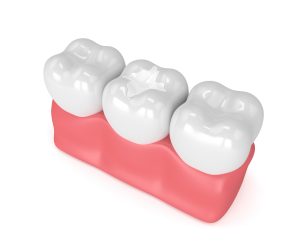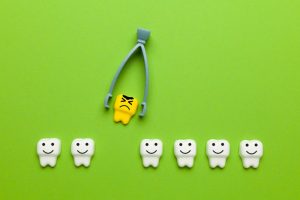Wylie Children's Dentistry Blog
Recognize 8 Signs of Teething and Help Your Baby Stay Comfortable
September 21, 2022

When you’re a brand-new parent, it can be tricky knowing what’s wrong when your baby cries. Are they hungry? Are they tired? Does their diaper need to be changed? Soon you develop a groove. However, at some point, teething also becomes a concern. Fortunately, teething often comes with symptoms that can be clearer to identify. In this post, you’ll learn about these signs and how you can make sure you both make it through this phase in your baby’s development.
(more…)Talk Like a Pirate – But Don’t Treat Your Teeth Like One!
September 4, 2022

September 19 is approaching, so International Talk Like a Pirate Day will be here before we know it! If you’ve ever wondered why pirates have a reputation for horrible teeth, there’s certainly a reason. In honor of this unique day, a pediatric dentist in Wylie shares why pirates had terrible oral health and what steps you can take to ensure your smile shines brighter than buried treasure!
(more…)Promote Academic Success with a Healthy Smile
August 15, 2022
 Children around the country are getting ready to head back to the classroom. As you shop for the perfect supplies to ensure they have everything they need to succeed, is a healthy smile on their back-to-school list? Dental problems account for 2 million missed school days each year, many of which could have been avoided through preventive dental care. Here’s how a cleaning and checkup with a children’s dentist can stop a toothache from keeping your little one out of the classroom.
Children around the country are getting ready to head back to the classroom. As you shop for the perfect supplies to ensure they have everything they need to succeed, is a healthy smile on their back-to-school list? Dental problems account for 2 million missed school days each year, many of which could have been avoided through preventive dental care. Here’s how a cleaning and checkup with a children’s dentist can stop a toothache from keeping your little one out of the classroom.
Common Questions About Dental Sealants
August 5, 2022

Brushing and flossing aren’t the only ways to defend your child’s smile from tooth decay. Regular care from a dentist is equally important. Besides a cleaning and checkup, your children’s dentist may also recommend dental sealants. A thin coating is applied to the chewing surfaces of their molars, which are the most cavity-prone areas in children. This creates a protective barrier over their enamel to safeguard their back teeth from decay. Don’t worry if you have a few questions. Here are the answers you need to make the best decision for your little one’s smile.
Pulp Therapy: Saving Developing Smiles with Root Canals
July 5, 2022

You know soda isn’t the best beverage for your young child, but they love it. They see you drink it every day too and want to be like you! You tell yourself they are drinking fluids, and you don’t see the harm—until one day they complain about a toothache, and you need to see an emergency dentist for kids.
When you take them to see their pediatric dentist, you discover that a baby tooth has a deep cavity. Basically, your choices are to get pulp therapy or a root canal or to have the tooth removed entirely. Although extracting the baby tooth can seem like a logical thing to do, pulp therapy may be the right way to go for your child’s smile in the long run! Keep reading to learn more about this treatment and how it can benefit your little one.
(more…)How to Respond If Your Child Knocked Out a Tooth
June 4, 2022

When your child is gleeful about the new gap in their grin and excitedly awaiting a visit from the Tooth Fairy, it doesn’t get much cuter than that. But what if your child knocked out a tooth unexpectedly? While this can be scary for your youngster in the moment, it can be stressful for you too. Like anything that happens without being anticipated, it’s always better to have a plan. Keep reading to find out from a pediatric dentist in Wylie what you should do immediately after the tooth loss as well as learn how your child’s emergency dentist can restore their smile to a pain-free state.
(more…)What Are Reasons for Children’s Tooth Extractions?
April 4, 2022

A baby tooth extraction occurs when a dentist surgically removes a primary tooth. If you’ve been told your child needs to have a tooth pulled, you may be wondering why. After all, their primary teeth are going to fall out anyway. The truth is this is one of the most common pediatric dentistry procedures. Continue reading to learn from a pediatric dentist in Wylie reasons why children’s tooth extractions are sometimes necessary and get some aftercare tips.
(more…)Your Questions about Dental Sealants – Answered
March 12, 2022

When it comes to taking care of your child’s teeth and preventing cavities, brushing and flossing are crucial – but even with excellent dental hygiene, your little one may need a little more help to keep bacteria from building up in the nooks and crannies of the teeth. Dental sealants offer a wonderful method for preventing cavities. Keep reading to learn more about how they work, and why they are a crucial ingredient for every child’s healthy smile.
(more…)What Are Surprising Tooth Fairy Stories Your Child Hasn’t Heard?
January 4, 2022

Remember how exciting it was as a child to leave a newly lost tooth under your pillow before bed and wonder what president would be on the bill in the tooth’s place when you woke up? Those were great times. The tooth fairy is quite famous with a legend that extends well beyond the United States. Read on to learn some international tooth fairy stories from your pediatric dentist in Wylie. What are the tooth fairy’s origins and how do rodents often play a prominent role?
(more…)What Can I Do to Protect My Child’s Teeth During Flu Season?
November 4, 2021

Trying to keep your children from getting sick becomes more difficult than usual during cold-and-flu season when winter rolls around. Understandably, when they are sick it can distract you from things you might normally be on top of, such as making sure they brush their teeth.
The average child will get 6-8 colds per year with most of them coming during the winter. After all, children are more prone to disease, as they constantly touch everything and chew on more than they should.
Imagine needing to take them to the dentist for a cavity while they were sick. No adult wants to endure that, either. Keep reading for some tips on kids’ oral care during cold-and-flu season from your pediatric dentist in Wylie.
(more…)